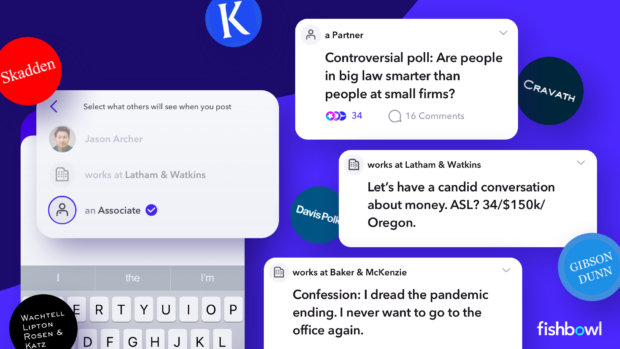Firm
Date Matched
Special Bonuses
MilbankClass of 2020/2021:
$200K $205K
Class of 2013:
$355K $365K
FIRST MOVER
June 10, 2021
June 29, 2021 (
re-raise)
YesClass of 2020: $12K
Class of 2013: $64K
McDermott Will & EmeryClass of 2020:
$200K $205K
Class of 2013:
$355K $365K
June 10, 2021
June 11, 2021 (
re-raise)
Yes (hours-based)
Class of 2020: $12K
Class of 2014+: $64K
CadwaladerClass of 2020/2021: $200KClass of 2021: $202.5K
Class of 2020: $205K
Class of 2013:
$355K $365K
June 10, 2021
June 16, 2021 (
re-raise)
Yes (hours-based)
Class of 2020: $12K
Class of 2014+: $64K
MintzClass of 2020/2021: $200K
Class of 2013: $355K
June 10, 2021
No
Arent Fox1st Years: $190K
2nd-8th Years: Individualized (but likely in the +$15K range)
June 10, 2021
No (but the firm is adjusting its productivity bonuses, will range from $15K to $75K for 1950 hours)
FenwickTier 1/Level 1:
$200K $205K
Tier 3:
$355K $350K-$375K
June 10, 2021
June 22, 2021 (
re-raise)
Yes (hours-based)
Tier 1/Level 1: $12K
Tier 3: $64K
Davis PolkClass of 2021: $202.5K
Class of 2020: $205K
Class of 2013+: $365K
NEW MARKET LEADER
June 11, 2021
YesClass of 2020: $12K
Class of 2014+: $64K
Winston & StrawnClass of 2021: $205K
Class of 2020:
$200K $205K
Class of 2013+:
$355K $365K
June 11, 2021
June 23, 2021 (
re-raise)
Yes (hours-based)
Class of 2020: $12K
Class of 2013+: $64K
Baker McKenzieClass of 2021: $202.5K
Class of 2020: $205K
Class of 2013: $365K
June 11, 2021
Yes (hours-based)
Class of 2020: $12K
Class of 2013+: $64K
DechertClass of 2021: $202.5K
Class of 2020: $205K
Class of 2013+: $365K
June 11, 2021
Yes (hours-based)
Class of 2020: $12K minimum
Class of 2014+: $12K minimum, “enhanced” up to $64K
LowensteinClass of 2020: $205K
Class of 2013: “corresponding [salary] adjustment”
June 11, 2021
Yes (hours-based)
Class of 2020: $12K
Class of 2013: $64K
Proskauer RoseClass of 2021: $202.5K
Class of 2020: $205K
Class of 2013: $365K
June 11, 2021
YesClass of 2020: $12K
Class of 2013: $64K
Cleary GottliebClass of 2021: $202.5K
Class of 2020: $205K
Class of 2013+: $365K
June 11, 2021
YesClass of 2020: $12K
Class of 2013: $64K
Gunderson DettmerClass of 2021: $202.5K
Class of 2020: $205K
Class of 2012: $375K
June 11, 2021
Yes (hours-based)
Class of 2020: $12K
Class of 2013+: $64K
PolsinelliClass of 2022: $170K to $200K, depending on market
Class of 2013: Presumptive corresponding salary adjustments
June 11, 2021
No
Vinson & ElkinsClass of 2021: $202.5K
Class of 2020: $205K
Class of 2013: $365K
June 14, 2021
Yes (hours-based)
Class of 2020: $12K
Class of 2014+: $64K
PillsburyClass of 2021: $202.5K
Class of 2020: $205K
Class of 2014: $350K
Counsel: $365K
June 14, 2021
Yes (hours-based)
Class of 2020: $12K
Class of 2014/Counsel: $64K: $64K
Brewer, Attorneys & CounselorsClass of 2020: $205K
Class of 2013: Presumptive corresponding salary adjustments
June 14, 2021
No
Boies SchillerClass of 2021: $202.5K
Class of 2020: $205K
Class of 2013+: $365K
June 14, 2021
YesClass of 2020: $12K
Class of 2014+ $64K
O’Melveny & MyersClass of 2020: $205K
Class of 2013+: $365K
June 15, 2021
YesClass of 2020: $12K
Class of 2014+: $64K
SkaddenClass of 2020: $205K
Class of 2013+: $365K
June 15, 2021
Yes (hours-based)
Class of 2020: $12K
Class of 2014+: $64K
Hueston HenniganClass of 2020: $205K
Class of 2013+: $365K
June 15, 2021
YesClass of 2020: $12K
Class of 2014+: $64K
Mayer BrownClass of 2020: $205K
Class of 2013+: $365K
June 15, 2021
Yes (hours-based)
Class of 2020: $12K
Class of 2014+: $64K
Ropes & GrayClass of 2020: $205K
Class of 2013+: $365K
June 16, 2021
YesClass of 2020: $12K
Class of 2014+: $64K
FreshfieldsClass of 2020: $205K
Class of 2013+: $365K
June 16, 2021
YesClass of 2020: $12K
Class of 2014+: $64K
Akin GumpClass of 2021: $202.5K
Class of 2020: $205K
Class of 2013: $365K
June 16, 2021
Yes (potentially hours-based for second payment)
Class of 2020: $12K
Class of 2014+: $64K
Norton Rose FulbrightClass of 2021: $202.5K
Class of 2020: $205K
Class of 2013: $365K
(only applies in California, New York, Texas, and D.C. offices; presumed raises on “regional scale” in other offices)
June 16, 2021
Yes (hours-based; only in California, New York, Texas, and D.C.; payouts on “regional scale” in other offices)
Class of 2020: $12K
Class of 2014+: $64K
SeyfarthA; P1: $170K (Charlotte, Houston, Sacramento, Seattle) / $190K (New York, Atlanta, Boston, Chicago, San Francisco, Washington, Los Angeles)
SA; P3: $265K / $320K
June 16, 2021
No
Selendy & GayClass of 2021: $202.5K
Class of 2020: $205K
Class of 2014: $350K
June 16, 2021
YesClass of 2020: $13.8K
Class of 2014+: $73.6K
Seward & KisselClass of 2021: $202.5K
Class of 2020: $205K
Class of 2013+: $365K
June 16, 2021
No
Wilson SonsiniClass of 2021: $205K
Class of 2020: $205K
Class of 2013: $365K
June 16, 2021
Yes (hours-based)
Class of 2020: $12K
Class of 2012+: $64K
Schulte Roth & ZabelClass of 2021: $202.5K
Class of 2020: $205K
Class of 2012: $375K
June 16, 2021
Yes (hours-based)
Class of 2020: $12K
Class of 2012: $64K
DLA PiperClass of 2020: $205K
Class of 2012+: $375K
June 16, 2021
YesClass of 2020: $12K
Class of 2012: $64K
Wilkinson StekloffClass of 2020: $205K
Class of 2013+: $365K
June 16, 2021
No
CravathClass of 2020: $205K
Class of 2014: $350K
June 16, 2021
YesClass of 2020: $12K
Class of 2014: $64K
Paul WeissClass of 2020: $205K
Class of 2013+: $365K
June 16, 2021
YesClass of 2020: $12K
Class of 2014+: $64K
Sheppard MullinEntry Level: $202.5K
Counsel 2: $365K
June 17, 2021
Yes (hours-based)
A1: $12K
C2: $64K
Willkie FarrClass of 2020/2021: $205K
Class of 2013+: $365K
June 17, 2021
YesClass of 2020: $12K
Class of 2014+: $64K
Fried FrankClass of 2021: $202.5K
Class of 2020: $205K
Class of 2012: $375K
June 17, 2021
Yes (hours-based)
Class of 2020: $12K
Class of 2014+: $64K
Munger TollesClass of 2021: $202.5K
Class of 2020: $205K
Class of 2013+: $365K
June 17, 2021
No
Morgan LewisClass of 2020: $205K
Class of 2013: $365K
June 17, 2021
YesClass of 2020: $12K
Class of 2014+: $64K
GoodwinClass of 2021: $202.5K
Class of 2020: $205K
Class of 2013+: $365K
June 17, 2021
Yes (hours-based)
Class of 2020: $12K
Class of 2014+: $64K
WilmerHaleClass of 2021: $202.5K
Class of 2020: $205K
Class of 2013+: $365K
June 17, 2021
Yes (hours-based)
Class of 2020: $12K
Class of 2014+: $64K
Paul HastingsClass of 2020: $205K
Class of 2013+: $365K
June 17, 2021
Yes (hours-based)
Class of 2020: $12K
Class of 2014+: $64K
Allen & OveryClass of 2020: $205K
Class of 2013: $365K
June 17, 2021
YesClass of 2020: $12K
Class of 2013: $64K
Fish & RichardsonA1: $205K
A7: $350K
June 17, 2021
Yes (hours-based)
A1: $12K
A7: $64K
DebevoiseClass of 2021: $202.5K
Class of 2020: $205K
Class of 2012+: $375K
June 17, 2021
YesClass of 2020: $12K
Class of 2014+: $64K
Cohen ZifferClass of 2021: $202.5K
Class of 2020: $205K
Class of 2013+: $365K
June 17, 2021
No (firm founded less than 6 months ago)
Simpson ThacherClass of 2020: $205K
Class of 2013: $365K
June 17, 2021
YesClass of 2020: $12K
Class of 2013: $64K
Kirkland & EllisClass of 2020: $205K
Class of 2015: $330K
June 17, 2021
YesClass of 2020: $12K
Class of 2015+: $59.2K
White & CaseClass of 2020: $205K
Class of 2013: $365K
June 17, 2021
Yes (hours-based)
Class of 2020: $12K
Class of 2013+: $64K
Quinn EmanuelClass of 2021: $202.5K
Class of 2020: $205K
Class of 2013: $365K
June 17, 2021
Yes (hours-based)
Class of 2020: $12K/$15K
Class of 2014: $64K/$80K
Hogan LovellsClass of 2021: $202.5K
Class of 2020: $205K
Class of 2013+: $365K
June 17, 2021
Yes (hours-based)
Class of 2020: $12K
Class of 2014+: $64K
CooleyClass of 2021: $205K
Class of 2020: $205K
Class of 2012: $375K
June 17, 2021
Yes (hours-based)
Class of 2020: $12K
Class of 2014+: $64K
Gibson DunnClass of 2021: $202.5K
Class of 2020: $205K
Class of 2013: $365K
June 17, 2021
Yes (hours-based)
Class of 2020: $12K
Class of 2014+: $64K
Katten MuchinClass of 2020: $205K
Class of 2014+: $350K
June 17, 2021
Yes (hours-based)
Class of 2020: $12K
Class of 2014+: $64K
Kramer LevinClass of 2020: $205K
Class of 2012: $375K
June 17, 2021
Yes (hours-based)
Class of 2020: $12K
Class of 2014+: $64K
Hunton Andrews KurthClass of 2020: $205K
Class of 2013: $365K
(based on performance evaluations)
June 17, 2021
Yes (hours-based)
Class of 2020: $12K
Class of 2014+: $64K
MoFoClass of 2021: $202.5K
Class of 2020: $205K
Class of 2013+: $365K
June 17, 2021
Yes (hours-based)
Baker BottsClass of 2021: $202.5K
Class of 2020: $205K
Class of 2013+: $365K
June 18, 2021
Yes (hours-based)
Class of 2020: $12K
Class of 2014+: $64K
McKool SmithClass of 2020: $205K
Class of 2014: $350K
June 18, 2021
Yes (hours-based)
Class of 2020: $12K
Class of 2014+: $64K
IrellClass of 2021: $205K
Class of 2020: $205K
Class of 2013: $365K
June 18, 2021
YesClass of 2020: $26.5K
Class of 2014+: $73K
Keker Van NestClass of 2020: $205K
Class of 2013+: $365K
June 18, 2021
YesClass of 2020: $12K
Class of 2014+: $64K
Reid Collins & Tsai1st-3rd Year: $225K
3rd-5th Year: $275K
5th-7th Year: $325K
6th Year+ (nonequity partners): $400K
June 18, 2021
No (but firm has paid out ~$80K per associate in bonuses in 2021 thus far)
Kellogg Hansen1st Year: $245K
6th Year+: $370K
June 21, 2021
No
SidleyClass of 2021: $205K
Class of 2020: $205K
Class of 2013: $365K
June 21, 2021
YesClass of 2020: $12K
Class of 2014+: $64K
Sullivan & CromwellClass of 2020: $205K
Class of 2013+: $365K
June 21, 2021
YesClass of 2020: $12K
Class of 2014: $64K
LathamClass of 2020: $205K
Class of 2012+: $375K
June 21, 2021
Yes (hours-based)
Class of 2020: $12K
Class of 2014+: $64K
DesmaraisClass of 2020: $210K
Class of 2013: $370K
June 21, 2021
Yes
Class of 2020: $12K
Class of 2014+: $64K
Weil GotshalClass of 2021: $202.5K
Class of 2020: $205K
Class of 2014: $350K
June 21, 2021
YesClass of 2020: $12K
Class of 2014+/3-Year Counsel: $64K
CahillClass of 2021: $205K
Class of 2020: $205K
Class of 2013+: $365K
June 21, 2021
YesClass of 2020: $12K
Class of 2014: $64K
CovingtonClass of 2021: $202.5K
Class of 2020: $205K
Class of 2013: $365K
June 21, 2021
Yes (hours-based)
Class of 2020: $12K
Class of 2014+: $64K
Choate HallClass of 2020: $205K
Class of 2012: $375K
June 21, 2021
No
Clifford ChanceClass of 2021: $205K
Class of 2020: $205K
Class of 2013: $365K
June 21, 2021
YesClass of 2020: $12K
Class of 2014+: $64K
Haynes & BooneClass of 2020: $205K
Class of 2014: $350K
(raise contingent on having billed 1800 hours in the 12 months prior as of June 30, 2021; class of 2020 exempt)
June 21, 2021
Yes (hours-based)
Class of 2020: $12K
Class of 2014+: $64K
OrrickIncoming Year 1 Assoc: $202.5K
Year 1 Assoc: $205K
Senior Assoc Year 2: $350K (eligible for $15K adjustment, for a total of $365K)
June 21, 2021
YesClass of 2020: $12K/$13.1K
Class of 2014/Counsel: $64K/$70K
Chapman & CutlerClass of 2021: $202.5K
Class of 2020: $205K
Class of 2013: $365K
June 21, 2021
No
Ross AronstamClass of 2021: $202.5K
Class of 2020: $205K
Class of 2013: $365K
June 21, 2021
YesClass of 2017: $44K
Class of 2014+: $64K
Sherman & SterlingClass of 2021: $202.5K
Class of 2020: $205K
Class of 2013: $365K
June 21, 2021
YesClass of 2020: $12K
Class of 2014+: $64K
Steptoe & JohnsonClass of 2021: $202.5K
Class of 2020: $205K
Class of 2013: $365K
June 21, 2021
Yes (hours-based)
Class of 2020: $12K
Class of 2014+: $64K
Dorsey & Whitney4th Year+ (Minneapolis, Salt Lake City, Seattle, Denver): $10-15K raises
June 21, 2021
Yes (hours-based; not by class year; below market)
1800-1899: $2.5K
2400+: $20K
Arnold & PorterClass of 2021: $202.5K
Class of 2020: $205K
Class of 2013+: $365K
June 22, 2021
Yes (hours-based)
Class of 2020: $12K
Class of 2014+: $64K
LinklatersClass of 2021: $202.5K
Class of 2020: $205K
Class of 2013: $365K
June 22, 2021
YesClass of 2020: $12K
Class of 2014+: $64K
TorysClass of 2021: $202.5K
Class of 2020: $205K
Class of 2013+: $365K
June 22, 2021
Yes (hours-based)
Class of 2020: $12K
Class of 2014+: $64K
Perkins CoieClass of 2020: $205K
Class of 2013: $365K
June 23, 2021
Yes (hours-based)
Class of 2020: $12K
Class of 2014+: $64K
King & SpaldingClass of 2020: $205K
Class of 2014+: $350K
June 24, 2021
Yes (hours-based)
Class of 2020: $12K
Class of 2014+: $64K
Brown RudnickClass of 2020: $205K
Class of 2014: $350K
June 24, 2021
No
Snell & Wilmer1st Years: $190K (LA/OC/SD/DC)
$150K (Denver/PHX/SLC)
$145K (LV/Portland)
$135K (Reno/Tucson)
2nd Years+: Individualized, black box
June 24, 2021
No
Jenner & BlockClass of 2021: $202.5K
Class of 2020: $205K
Class of 2014: $350K
June 24, 2021
Yes (hours-based)
Class of 2020: $12K
Class of 2014: $64K
Kelley DryeAll class years raised by $10K
June 25, 2021
Yes (off-market; hours-based)
Discovery Attorneys: $5,000
Class of 2018-2020: $10K
Class of 2015-2017: $20K
Class of 2014+: $30K
Jones DayClass of 2020: $210K
Class of 2019+: Individualized, black box
June 25, 2021
No
Glenn AgreClass of 2020: $205K
Class of 2013+: $365K
June 28, 2021
No
Reed SmithClass of 2020: $205K
Class of 2019+: New national payscale to be announced on July 7
June 28, 2021
Yes (hours-based)
Class of 2020: $12K
Class of 2014: $64K
Alston & BirdClass of 2021: $202.5K
Class of 2020: $205K
Class of 2014+: $350K+
June 28, 2021
Yes (hours-based)
Class of 2020: $12K
Class of 2014+: $64K
Susman GodfreyClass of 2020: $210K
Class of 2013: $370K
June 29, 2021
No
StroockClass of 2021: $202.5K
Class of 2020: $205K
Class of 2013: $365K
June 29, 2021
Yes (hours-based)
Class of 2020: $12K
Class of 2014+: $64K
Faegre Drinker1st Years/8th Years: $205K/$315K (CA/CH/DC/NY)
$190K/$300K (PH)
$180K/$280K (CO/DA/MN/NJ/WM)
$150K/$230K (IN)
$140K/$215K (DM/FW))
July 1, 2021
No
Foley & LardnerClass of 2021: $202.5K
Class of 2020: $205K
Class of 2019: $215K
Class of 2018+: merit-based, “comparable” to DPW scale
July 1, 2021
Yes (hours-based)
Class of 2020: $12K
Class of 2014+: $64K
Holwell Shuster & GoldbergClass of 2020: $205K
Class of 2014: $340K
July 1, 2021
No
Stoel Rives$10K pay increase for all class years across all markets
July 1, 2021
No
K&L GatesClass of 2020: $205K
Class of 2013: $365K
Salaries individualized based on market compensation
July 2, 2021
No
Vedder PriceClass of 2020: $205K
Class of 2013+: $305K-$325K
Salaries individualized based on “market factors”
July 3, 2021
No

















 Kathryn Rubino is a Senior Editor at Above the Law, host of
Kathryn Rubino is a Senior Editor at Above the Law, host of 





